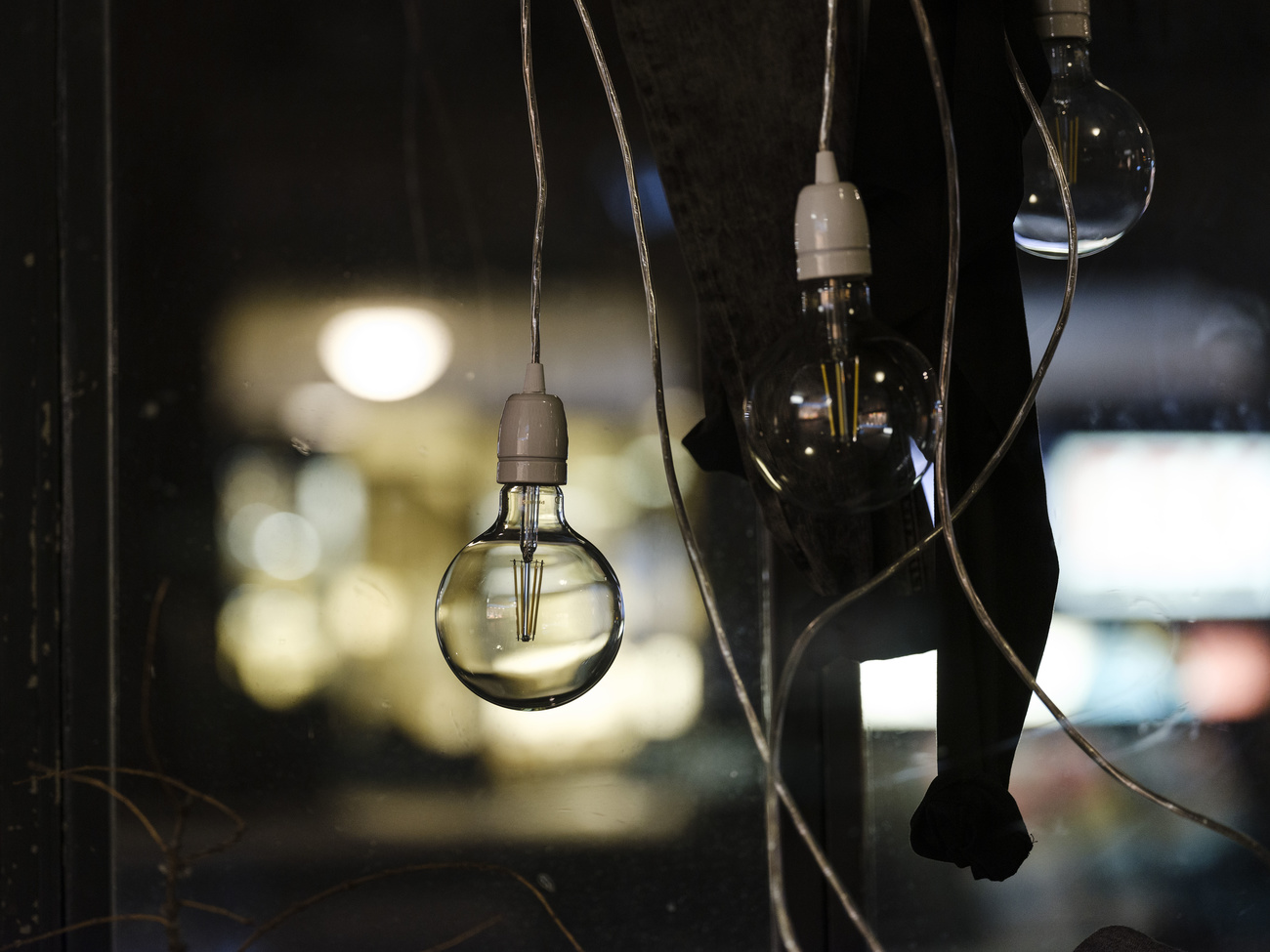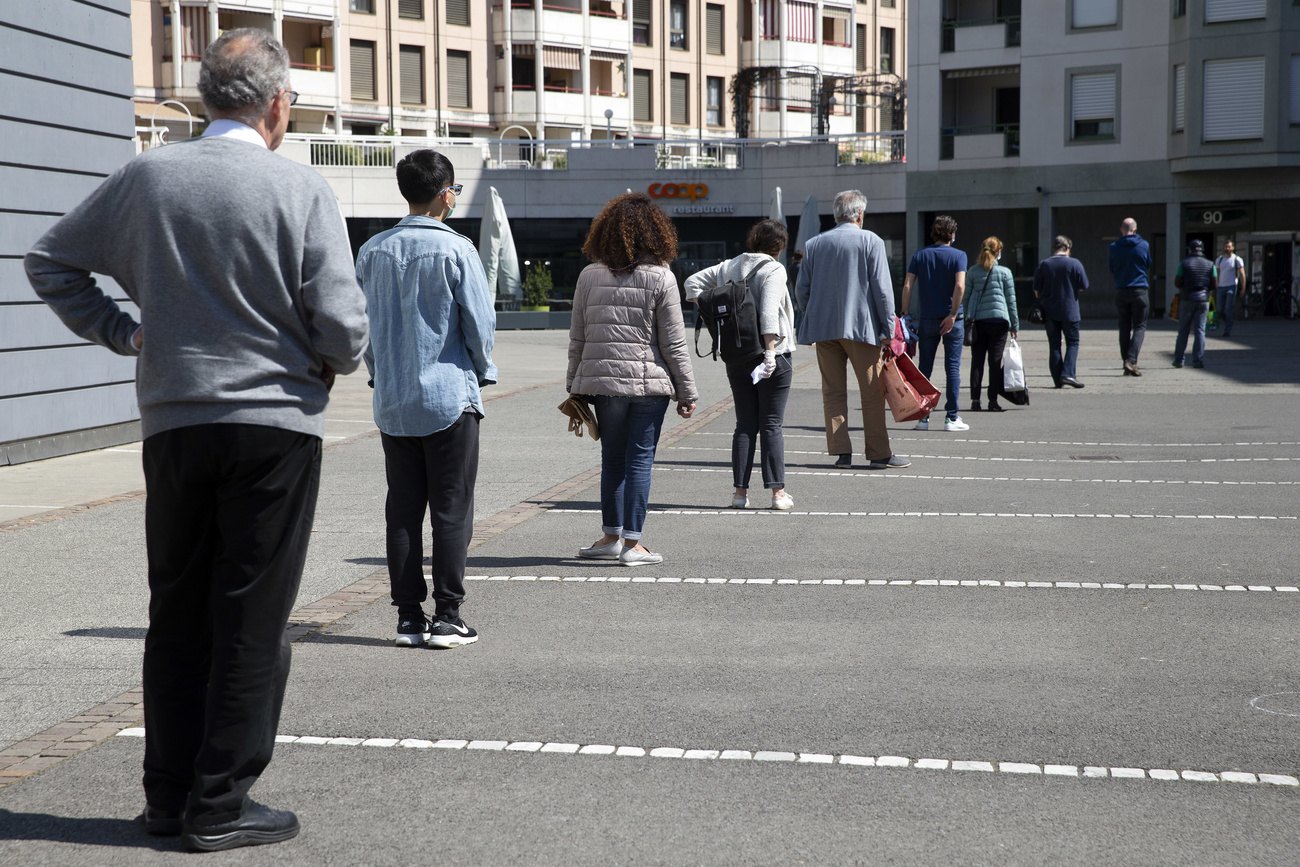
‘Shortage’ dominates Swiss Words of the Year

After two years of pandemic-related Words of the Year, the energy crisis facing Europe has left its mark on the jury in 2022.
Strommangellage (energy shortage), boycotter (to boycott), penuria (shortage) and mancanza (shortage) are the Words of the Year for 2022 in Switzerland’s four national languages.
“Electricity, which was seemingly always available, could suddenly be in short supply,” said the Department of Applied Linguistics at the Zurich University of Applied Sciences (ZHAW), which announced the winners on Tuesday.
“The situation is uncertain. Switzerland is networked and enmeshed in the European electricity market, but import volumes are currently not guaranteed. The war in Ukraine, the only tentative use of solar energy and climate change further aggravate the situation. Despite emergency scenarios, it could be a dark, cold winter in Swiss living rooms,” it said in a statementExternal link.
Strommangellage was followed by Schutzstatus S and Frauen-Ticket. The protection status S, activated for the first time ever this year, allows Ukrainian refugees to live and work in Switzerland for a year with an option to extend if necessary.
The Frauen-Ticket is an all-female shortlist of candidates intended to ensure that a woman succeeds retiring cabinet minister Simonetta Sommaruga on December 7.

More
Lights off: Swiss towns make Christmas energy savings
National concern
In the French-speaking part of the country the jury opted for the verb boycotter.
“In 2022, calls for boycotts in a wide range of areas have been increasing,” the jury noted. “In sport, we have seen boycotts of the Beijing Olympics and – as we speak – the football World Cup in Qatar. In politics, there have been calls to boycott elections, deliberately using the term to replace abstention, which is guilty of evoking resignation. It has also been possible to boycott a country, a project and – of course – all sorts of products, such as meat.”
In Italian-speaking Ticino and Romansh-speaking eastern Switzerland, penuria and mancanza were the jury’s first choices respectively.
“It is to be hoped that a greater awareness will emerge from this reflection that resources (water, raw materials, etc.) are not infinite and therefore a change in our relationship with the environment and nature must take place,” the panel concluded.
The Department of Applied Linguistics at the Zurich University of Applied Sciences ZHAW in Winterthur has been responsible for the Word of the Year since 2017 (2019 for Romansch). It analyses the Swiss discourse database Korpus Swiss-AL and determines for each language the words that were used more frequently or significantly differently in 2021 than in previous years.
A jury of language professionals then selects the three most distinctive words from this list, from suggestions from the audience and from their own experience. The four juries each consist of around ten linguists from German-, French-, Italian- and Romansh-speaking Switzerland.

More
Pandemic dominates Swiss Words of the Year

In compliance with the JTI standards
More: SWI swissinfo.ch certified by the Journalism Trust Initiative






























You can find an overview of ongoing debates with our journalists here . Please join us!
If you want to start a conversation about a topic raised in this article or want to report factual errors, email us at english@swissinfo.ch.